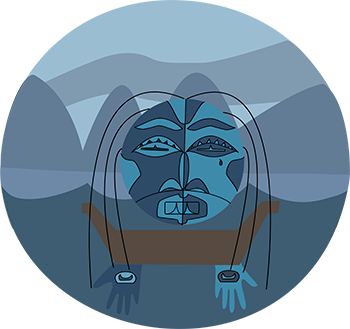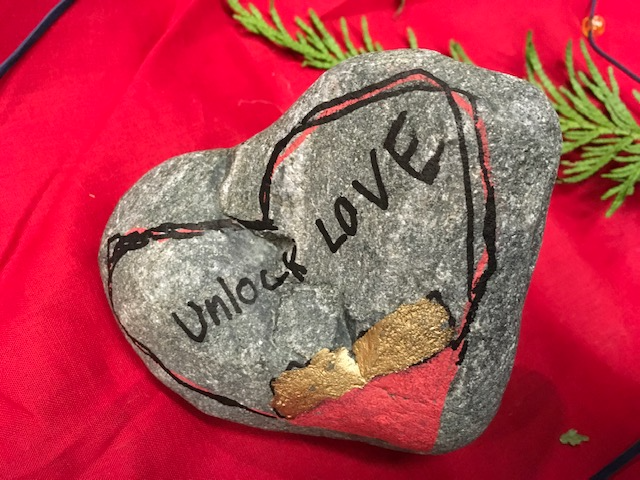Testimonials
Kinship Rising invites Indigenous young people of all genders to participate in conversations, stories and art making to centre dignity, wellbeing, and kinship connections. Stories that restore Indigenous land-body relations to promote healing from colonial gender violence.
“My dream is that
First Nations girls can walk home alone without fear.”
Participant
“Feeling isolated, feeling empty,
having heartbreak, feeling anxious,
my sadness turns into anger.”
Participant
Kinship Rising: Unapologetic, resurgent, connected, sovereign bodies.
What is Kinship Rising?
Kinship Rising responds to the need for Indigenous-led responses to gender-based violence. It is an arts-based, Indigenous project with Indigenous youth of all genders in Indigenous communities on B.C.’s west coast. Our focus is on challenging the victim-blaming climate of racialized gender violence by re-centering Indigenous values and teachings and linking body sovereignty to decolonization and land sovereignty.
We use artwork, storytelling and multi-media including digital collages, photography and video. Workshop topics might include youth vision for a strong community; supporting dignity, wellbeing and leadership; cultural healing; being on the land; healthy relationships; consent; secrecy and silencing; how, where and why gendered and sexualized violence happens; lateral and systemic violence; engaging with youth of all genders about sexual and gender violence; and understanding and interrupting the historical colonial roots of violence.
A lot of our work takes place on the land, with land-based materials, and with knowledge keepers. In past workshops, Elders joined youth participants to share teachings about gender (such as coming-of-age ceremonies) and guided participants with stories and teachings related to their specific heritage, such as learning language, making family and clan crests, picking berries, making traditional wool headbands, weaving cedar and upholding stories. Elders shared that these practices are central to body and gender wellbeing.
What we have heard from participants so far is that fear, stigma, and lack of effective responses all perpetuate the silence and isolation that surround gender-based violence. In turn, silence and denial are rooted in persistent systemic barriers: High rates of intersecting gendered, sexualized and racialized poverty, lack of services and infrastructure, colonial policies such as the Indian Act, residential schools and land appropriation, and continued colonial violence across social systems all perpetuate gender-based violence. In workshop after workshop, one important vision has been shared by participants: the need to honour community- and youth-generated responses that support inter-generational connections, the resurgence of Indigenous teachings of gender wellbeing, and self-determination over both bodies and homelands.
Kinship Rising is focused on blanketing and honouring Indigenous young people and their communities to support healing our bodies and gender relations from colonial violence, and reconnecting with our land and water sovereignty.
Kinship Rising is about restoring our connection to all our relations, lifting up the love we share for our kinship to live lives free from this violence.
To our ancestors, communities, families, and everyone
who has contributed to Kinship Rising, we are so grateful.
We raise our hands to our ancestors and all our relations, to those who have survived and to those who were stolen, and to all of those who grieve, resist, and walk in dignity through pain and resurgence.
“Watching the confidence of the youngest members of our workshops increase with each passing day – including the power of raising our voices proudly in song and community – was an honour to witness and participate in. This event solidified my already existing knowledge that we are experts on our own lives and experiences, and are crucial knowledge-holders and change-makers. It reminded me that we are always more strong and powerful when we are together.” - Participant
Our amazing team, which comes from a diversity of nations, is committed to “working in a good way” by following appropriate protocols with Elders, youth and communities, and ensuring consent and ownership of artwork and stories shared. We are committed to upholding our values and ethics of respecting, honouring, and asking for the consent of our participants throughout the whole process. Our work is focused on upholding the dignity, resurgence, blanketing, and honouring of Indigenous peoples. Our purpose is to (re)center Indigenous teachings and ways of being with regards to gender and sexuality specific to the communities we come from and work within.
We host workshops in communities across British Columbia. We look forward to hearing from you!


